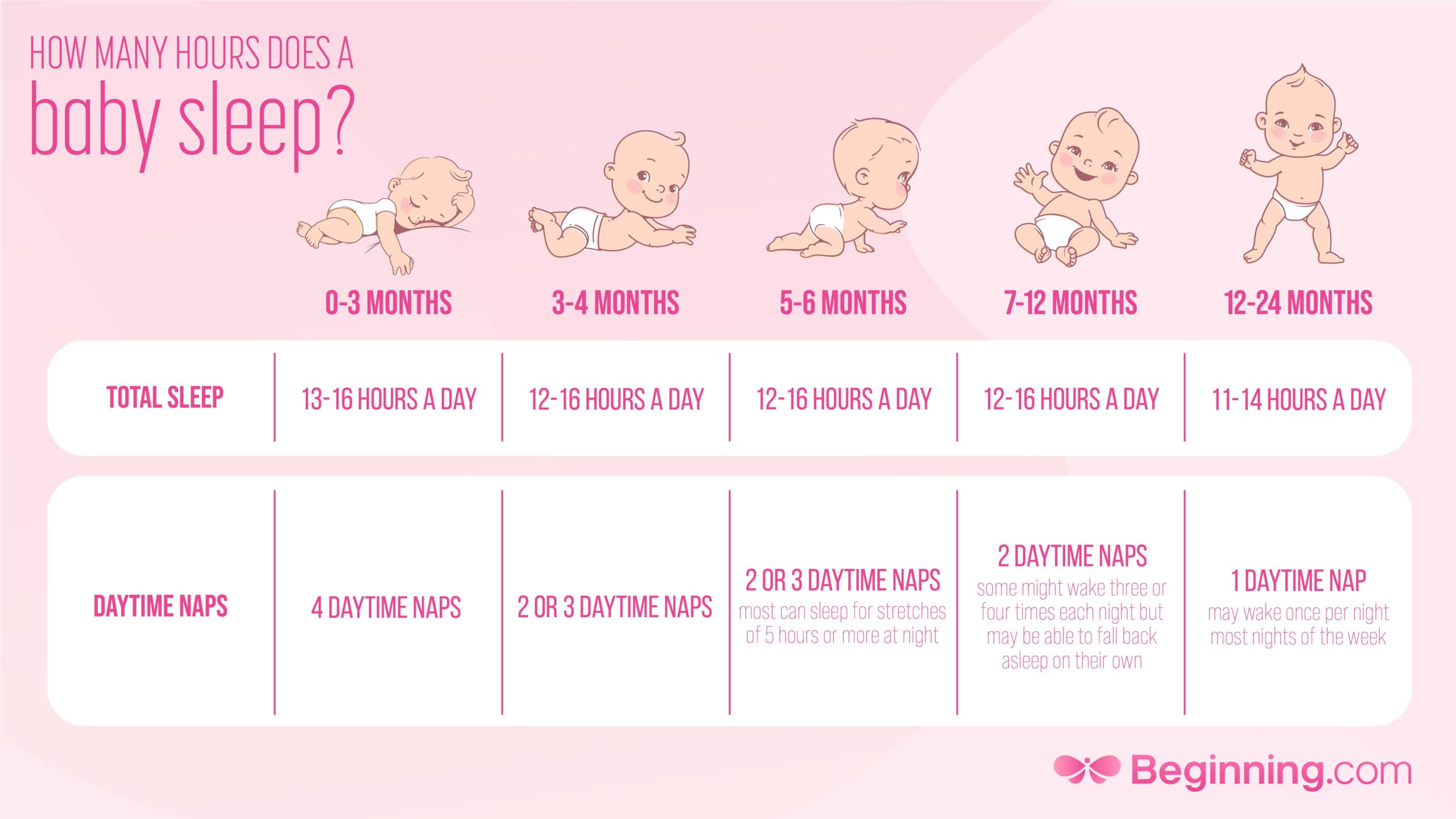Baby Sleep: Why Is It So Important And How Can You Help Your Little One Fall Asleep Naturally?
Sleeping babies. The phrase conjures up images of sweet angelic little faces. Yet getting them to sleep can be a monstrous task! It’s easy to spend hours down the Google rabbit hole trying to find the best baby sleep tips. Most parents would hand over stacks of cold hard cash if they could discover the magic key to help their baby to sleep at night without a fuss. They would pay even more if they could get them to stay asleep all night. All babies are different, so this article may not hold the magic key. But you will learn why infant sleep is so fragmented and discover a few tips to try out at home. Try them out for a few weeks, and you just might find the trick that works for you.
Why is sleep so important for babies?
Sleep is essential to your baby’s development. Infants’ brains develop at an extraordinary pace. While babies sleep, the brain is busy building networks and creating the foundation for social, emotional, and physical development.
Too little sleep can cause a number of health problems for your little one. Lack of sleep can cause moodiness and irritability, impulsive behavior, and feeding problems. Over the long term, sleep deprivation can cause behavioral problems and issues with social development.
How many hours does a baby sleep?
In the weeks following birth, newborns sleep a lot. They can sleep anywhere from 14 to 19 hours a day. Yet, this sleep is often in chunks of four hours or less as newborns are light sleepers and wake often to feed.
As babies get older, their sleep patterns change, and they will begin to sleep longer at night.
Here are some general guidelines:

As you can see, babies have a wide range of sleeping patterns, and some babies need less sleep than others. If you’re at all concerned that your baby is sleeping too much or not enough, don’t hesitate to get in touch with your doctor.
There can be medical conditions that may cause sleep problems. Since your baby cannot tell you if something is wrong, it’s important to pay attention to their behavior, especially eating and sleeping patterns. Some of the following medical conditions might be preventing your little one from getting the sleep they need:
- Ear infections
- Yeast and urinary tract infections
- Parasitic infections, such as pinworms
- Fever
- Respiratory infections
- Acid reflux
- Cows milk allergy
- Snoring and breathing irregularities
If you suspect any of these may be the culprit, get in touch with your doctor to arrange a checkup.
Baby sleep tips
Now that you know how much your baby should be sleeping and why you’re probably wondering what you can do to encourage your little one to fall asleep and stay asleep. Here are four tips to try out. Remember, you might need to try them for at least a week in order to see results. So if it doesn’t seem to work on the first night, don’t give up!
How to help your baby sleep at night
1. Expose your newborn to natural light.
Babies may take up to twelve weeks to develop the circadian rhythms that let them differentiate between day and night in a 24-hour cycle. Natural light works like a natural sleep aid for babies, so during the day, expose them to natural light as much as possible. Let them experience daytime light and your everyday hustle and bustle. At night, avoid exposure to artificial lighting and stimulating activities. When you wake during the night for diaper changes and feeding, use as little light as possible and avoid talking or loud noises.
2. Create a soothing bedtime routine.
What do you do before bed? Most of us have a bedtime routine whether we’ve consciously created one or not. You might change into pajamas, brush your teeth, have a cup of tea, or read a book. You’d probably have a hard time falling asleep if you jumped into bed without winding down after a busy day. The same goes for your baby.
A soothing bedtime routine is a fantastic baby sleep aid and one that you can adjust as your baby grows. A bedtime routine is also a great chance to bond with your little one and create your own special family traditions. Your routine shouldn’t be long or complicated. Aim for about twenty minutes and include some of the following activities:
- Bathtime
- Bedtime stories
- Lullabies
- Gentle massage
As time goes on, your baby will begin to associate this routine with bed, and they’ll know that it means it’s time to sleep.

Tips for getting your baby to stay asleep ALL night
1. Respond slowly to nighttime wakings
If your baby fusses in the middle of the night, give them a chance to settle on their own before picking them up. Newborns can be noisy sleepers, so it’s possible they’re just fussing a bit between sleep cycles and haven’t actually woken up all the way. If they’re given an opportunity to self-soothe, they will learn to get themselves back to sleep faster when they do wake up at night.
2. Use white noise or relaxing music
White noise or relaxing music are great tools for helping your baby fall asleep and stay asleep. White noise mimics the noises in the womb and helps babies shift into a deeper sleep state. Baby sleep music is another option as it lessens anxiety and reduces stress. Relaxing music to put your baby to sleep can also be added into the bedtime routine as soothing sounds will help your little one enter a calm emotional state before drifting off.
Not only will white noise and quiet music help your baby fall asleep, but they will also help keep your baby asleep during the night. They can mask sudden loud noises that may wake your kiddo such as a barking dog or the phone ringing. If your baby begins to wake during the night, then the white noise or relaxing music can help them go back to sleep as they associate the sound with sleep.
And there’s more…
Beginning.com has created BABY SLEEP, a series of relaxing audio sessions featuring white noise, soothing music, and authentic nature sounds. These beautiful soundscapes will help your baby fall asleep and stay asleep throughout the night. And the best thing? It’s completely natural! Access Baby Sleep to:
- Create a stress-free environment for your baby
- Nurture a healthy growth and development
- Significantly improve sleep quality
- Set up a consistent sleep schedule
- Develop your little one’s imagination
In addition, Beginning.com features dozens of masterclasses to support your journey of parenthood. Check out our Baby Massage class to discover different baby massages, their many benefits, and the best practical tips and movements.
Ready for a peaceful slumber?
We hope that you’ve learned a few useful tips to help your little treasure drift to dreamland. It may be challenging at first, but you’ll get the hang of it. And, before you know it, your kid or children will be teenagers, and then you’ll be Googling how to wake them up! For even more helpful tips and tricks on all things parenthood, make sure to check Beginning.com’s app. We have plenty of interactive tools to support you in this beautiful life journey…

